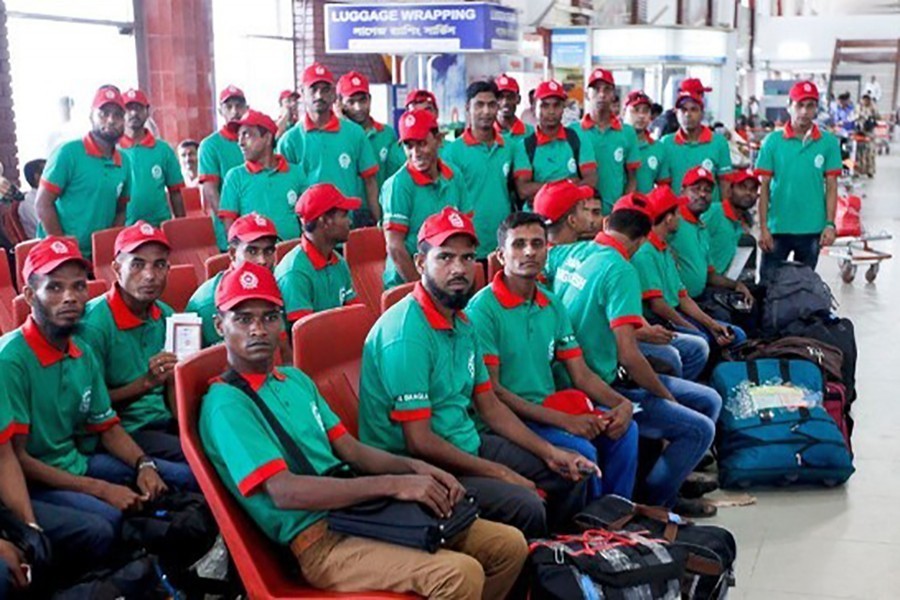
Published :
Updated :

The precondition set for manpower intermediaries (dalals in local vernacular) to be licensed as per the amendment of the relevant law, though belated, is still worth a sigh of relief. The newly enacted Overseas Employment and Migrants (Amendment) Act, 2023 requires manpower recruiting agencies to appoint only registered person/s as sub-agents or representatives in the manner prescribed by the law and associated rules. The government recently issued a gazette notification to this effect. A FE report says the government is now in the process of formulating necessary rules based on the amended law.
The issue came up in various fora, including regional and international ones. Little over a year ago, in August 2022, at the 9th meeting of the Thematic Area Working Group (TAWG) on ethical manpower recruitment held in Dhaka, the issue of bringing the intermediaries under a system of accountability in the origin countries was an important topic of discussion. The amendment of the law may be seen as a follow-up of the commitment Bangladesh made at the meeting.
What necessitated the amendment of the law is clear enough. There are innumerable instances of fraud causing utter misery to people seeking overseas jobs, and in most cases, it is allegedly the dalals representing the recruiting agencies who are the culprits with well-orchestrated schemes to make the poor and illiterate people their victims. Usually, it is the irresistible prospect of the job including security, salary and other related perks that lure jobseekers to step into their trap. But once found to have been cheated, they are barely left with any means to extricate them from the plight and get justice done. This is because the victims conduct their deals with the intermediaries who do not have any official identity as representatives of the recruiting agencies. Recruiting agencies take their services, but only informally. This is the gap left for unscrupulous recruiting agencies and sub-agents to commit fraud. According to the finding of the Refugee and Migratory Movements Research Unit (RMMRU) Tk 27.062 billion is lost annually due to such cheating. It is here that by bringing the intermediaries, now dubbed sub-agents, under legal binding through issuance of licences to them that the authorities intend to minimise the suffering of the migrant workers.
Given the literacy level of the overwhelming majority of aspiring migrant workers, it is presumed that the role of the sub-agents cannot be undermined in the recruiting process. Without their services, recruitment of workers from the grassroots would perhaps be impossible. They are the network that connects them in procuring work permit or visa for jobseekers and accomplishing scores of other formalities such as navigating the government procedures of online registration, passport processing, training, payment of migration cost, receiving BMET smart card and so on. So, while recognising the usefulness of their role, it is imperative that their activities are brought under a scanner. In order to do so, mere licensing will not help. It should be followed up by strict enforcement of rules, reportedly under process, to ensure that the purpose of amendment of the law is well served.


 For all latest news, follow The Financial Express Google News channel.
For all latest news, follow The Financial Express Google News channel.